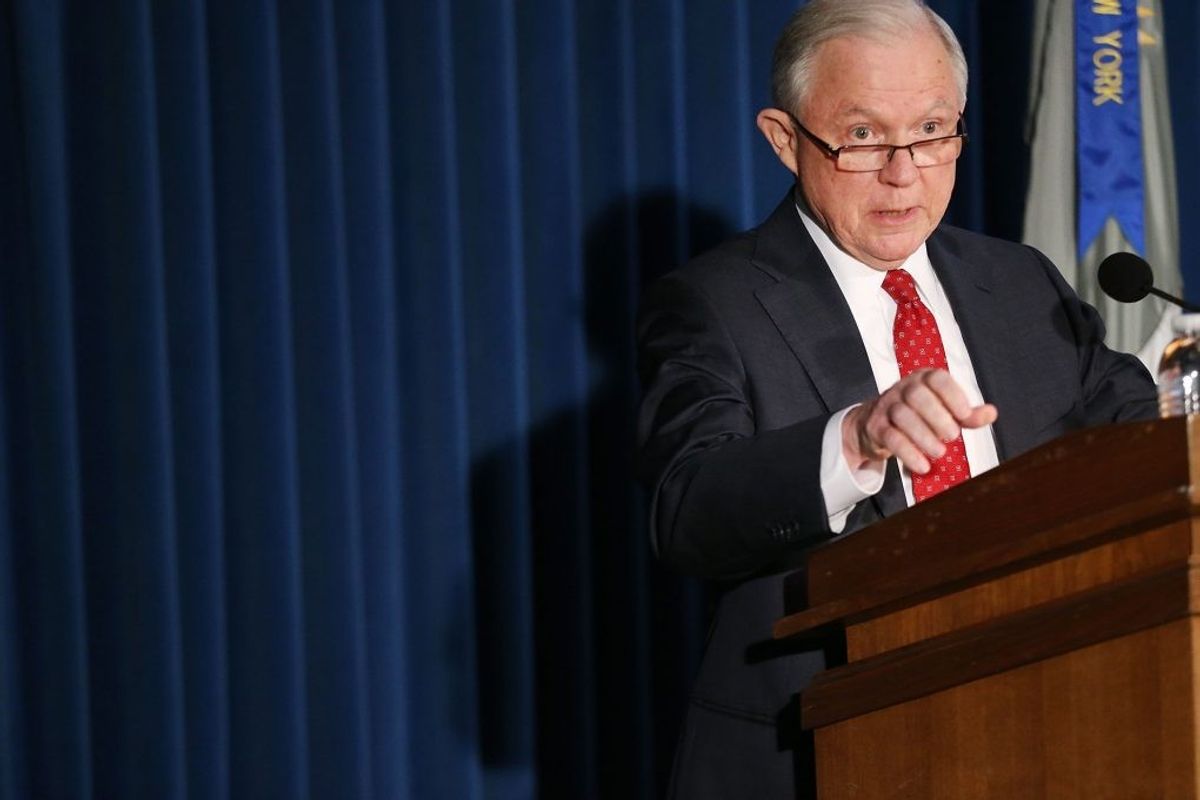The re-authorization of the National Security Agency’s internet surveillance program received a boost Tuesday from President Donald Trump’s nominee to head the national security division of the Department of Justice.
John Demers, nominated by Trump to be assistant attorney general, appeared on Capitol Hill for his confirmation hearing before the Senate Intelligence Committee and pledged to support the re-authorization of the controversial provision. The measure, known as Section 702 of the Foreign Intelligence Surveillance Act, is set to expire on December 31.
Section 702 legally authorizes the U.S. government to target the internet and telephone communications of foreign intelligence targets overseas, but who happen to be using U.S.-based telecommunication providers.
“I understand the Intelligence Community considers it to be a critical, if not the most critical, tool it has in the work that it does,” Demers told the committee.
Demers served as deputy assistant general for the national security division’s law and policy office from 2006 until 2009, during the administration of President George W. Bush. He helped draft the original version of Section 702, also known as the FISA Amendments Act, during this time. Demers is currently vice president and assistant general counsel at the Boeing Company.
The office oversees the Justice Department’s work on counterterrorism, counterintelligence and cybersecurity, including a prominent role in the ongoing investigation into Russian meddling in the 2016 election.
The acting head of the national security division, Dana Boente, resigned on Friday, having served in the position since April.
The intelligence committee approved legislation last week to renew the surveillance program, and the bill is currently awaiting action from the Senate Judiciary committee, which jointly oversees authority of the FISA program.
While admitting that he had not read the bill, Demers nonetheless affirmed his support for additional oversight measures included by Sen. Mark Warner (D-VA), the vice chairman of the committee.
“I do support, obviously, the oversight within the bill. I think there was significant oversight in the law as it stands today as well,” said Demers.
The sole point of contention during the hearing concerned the lack of a requirement for law enforcement to obtain a warrant in order to retroactively search content obtained under Section 702 authorities with U.S. selectors – such as names or emails – for purposes other than the initial collection was intented, a point Sen. Susan Collins (R-ME) pressed Demers on.
“Are you confident that a process does not violate Fourth Amendment prohibitions against unreasonable searches?” she asked Demers.
“Every court that has considered this has found no Fourth Amendment requirement that the government get a search warrant before querying this information for a U.S. person identifier, and that is consistent with the general Fourth Amendment principle that the government doesn’t need a search warrant to look at information lawfully in its possession. I believe that is the state of the case law today,” Demers responded.
Michael Morell, Cipher Brief expert and former deputy director of the Central Intelligence Agency, writing in the Washington Post earlier this month, called for law enforcement to obtain a search warrant when attempting to search data collected under Section 702, an article which was highlighted by Sen. Ron Wyden (D-OR) during his questioning of Demers.
“Americans are entitled to full protection of their privacy,” Morell wrote. “They should not lose that protection merely because the government has information in a foreign intelligence database that it legally acquired.”
It is unclear when the Senate will vote on his nomination.
Verdi Tzou is a national security web editor at The Cipher Brief.








